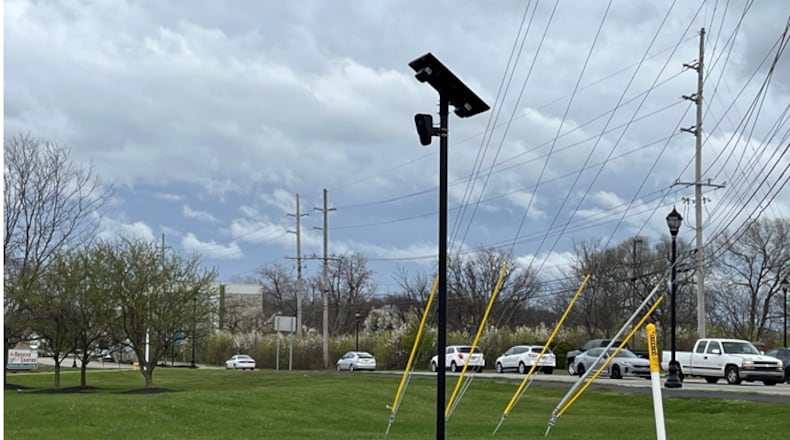Council has been discussing the issue for several months with police officials revising the policy after receiving feedback. Most of the concerns raised by council members has been the balancing the benefits of the evolving law enforcement technology and the personal privacy rights of residents.
In February, Sellers said asked for more time for council to review the policy as his “main concern is that this is a powerful tool. There’s a fine line between privacy and law enforcement.”
Smith told the Dayton Daily News that he voted against resolution because he wanted to strike the correct balance between the powerful tools used by police and protecting personal privacy.
“Our current local police department is full of honorable men and women. I trust them. My concern is the Flock Cameras are part of an ever-increasing local surveillance network that poses long-term future problems for civil liberties,” Smith said in an email response.
Smith said the resolution contained some good clauses. “However, I wanted the protections to be stronger and for them to have been solidified in the form of a city ordinance, which would have been more complex, but would have carried the full force of law,” he said. They are indeed very powerful tools, but the question I ask myself is at what point do we finally limit the government’s ever-increasing power?”
Sellers and Lamoreaux could not be reached for comment for this story.
The cameras, which are made by the company Flock, have been installed in a number of area communities as a force multiplier to assist police. Lebanon’s new policy permits using the technology in identifying vehicles that are stolen or wanted, stolen license plates and missing persons. The cameras are also used to gather information related to active warrants, homeland security, electronic surveillance, suspect interdiction, and stolen property recovery. In addition, the new policy is within compliance with the Commission on Accreditation for Law Enforcement Agencies (CALEA) standards.
Lebanon plans to install 20 stationary Flock cameras with license plate readers throughout the city’s high traffic areas.
In February, police Capt. Mike McCutchan said the costs are $3,000 per camera and $8,000 for installation for a total quote of $68,000. He said the city has budgeted $70,000 for the project. While the project costs are within the city manager’s threshold to purchase and have been budgeted, both City Manager Scott Brunka and police officials wanted to get council’s approval before moving forward.
Brunka said the new cameras could be operational as soon as this fall. He said it would take several months for the city to begin the procurement process and install the new cameras around the city.
McCutchan said the fixed position LPR’s can read the license plate and determine the color, make, and type of vehicle which are searchable. He said the LPR’s gather objective evidence and facts about vehicles, but does not use facial recognition technology on people.
The system has real-time alerts of wanted vehicles or vehicles associated with a known suspect is detected, McCutchan said. He said the cameras are used to assist law enforcement solve crimes and that the camera system also adheres to all state laws.
McCutchan said the updated policies include photos would be owned by Lebanon police and never sold or shared by Flock; a 30-day retention period before photos are deleted; all data is stored with cloud-based technology with end-to-end encryption; and a supervisor has to authorize access and include an incident number before accessing system for audit trail.
The system would be audited on a quarterly basis to ensure policy compliance. He also said the still camera system does not use GPS or facial recognition technology.
The same technology is being used by the Warren County Sheriff’s Office; Hamilton County Sheriff’s Office, Montgomery County Sheriff’s Office and Greene County Sheriff’s Office and police departments in South Lebanon, Mason, Springboro, Franklin, Hamilton Twp., Loveland, and Middletown.
Lebanon police obtained temporary user access in July.
From July to February, police have utilized Flock software to assist with 31 investigations. Those investigations included three missing person reports; six stolen motor vehicle reports; nine thefts/shoplifting reports; two stolen license plate reports; two hit/skip crash reports; a burglary report; school trespassing report; pursuit/fleeing suspect report; aggravated menacing/inducing panic report; forgery/theft report; and a false police report involving the theft of a motor vehicle.
About the Author

